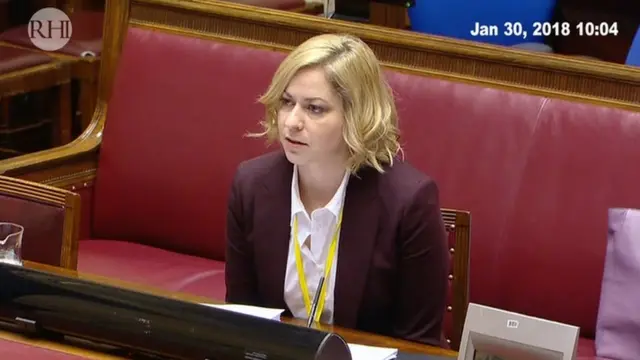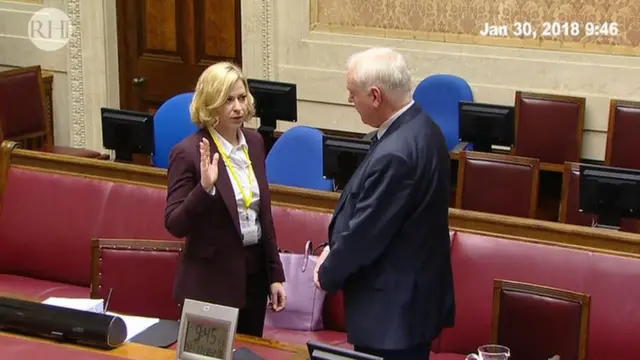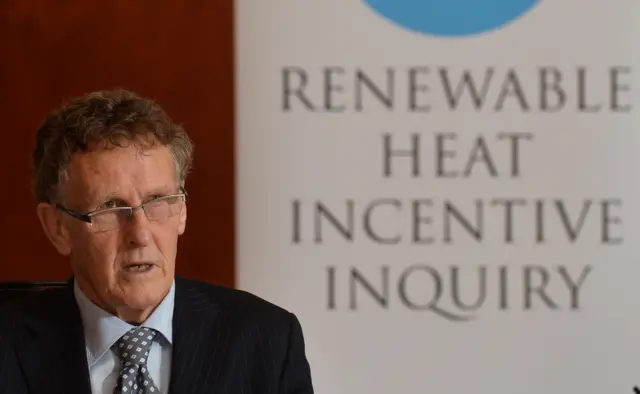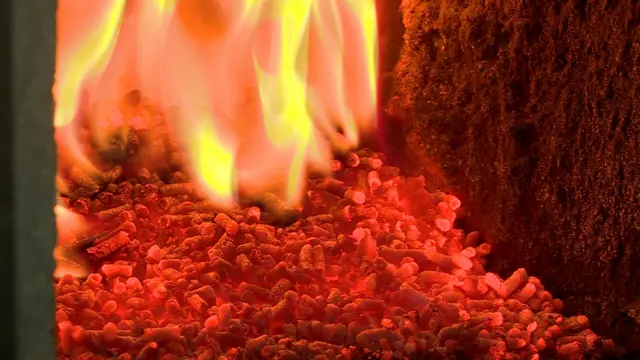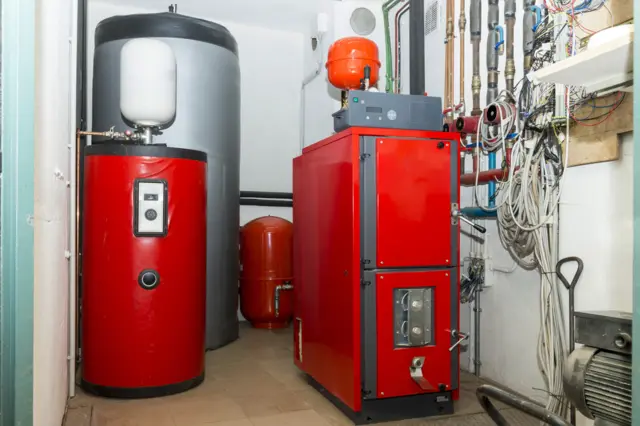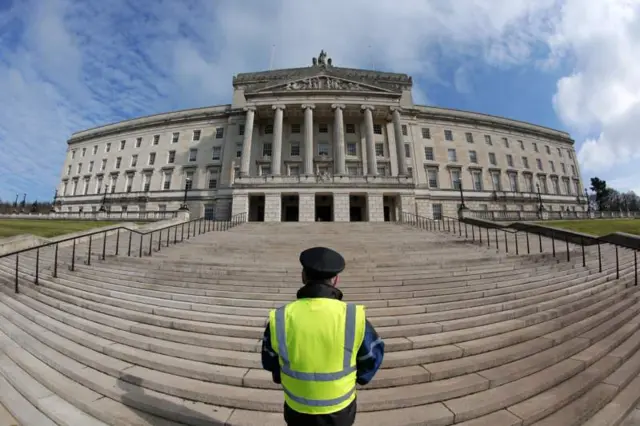'Cost estimates were a stab in the dark'published at 11:01 GMT 30 January 2018
Estimates of the RHI scheme's admin costs were a "stab in the dark", says Mr Scoffield.
It is pointed out that the GB RHI scheme had not been running for long at the time Ofgem's costs calculations were made, and would therefore have been difficult to draw a comparison from.

In spite of DETI's instruction to assume the NI scheme's uptake would be 3% of that in the GB initiative, Ms McArthur advised in the feasibility study that Ofgem should plan for a 5% uptake.
But at DETI, it was making its plans and seeking funding for costs based on a 3% uptake.
Ms McArthur says her approach was a "cautious" one and had she known DETI was going ahead with its 3% uptake assumption she would've told it that it "would be going against our recommendations".


